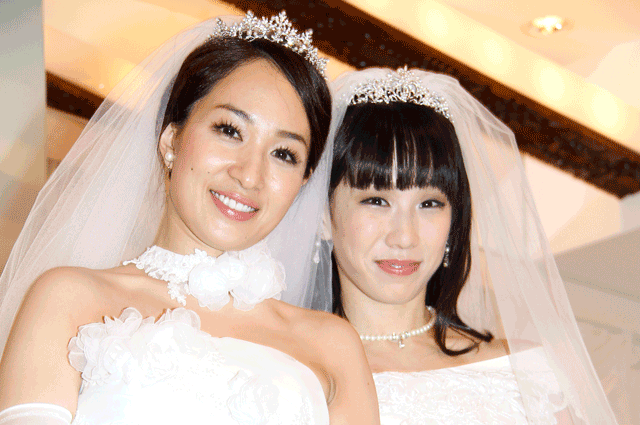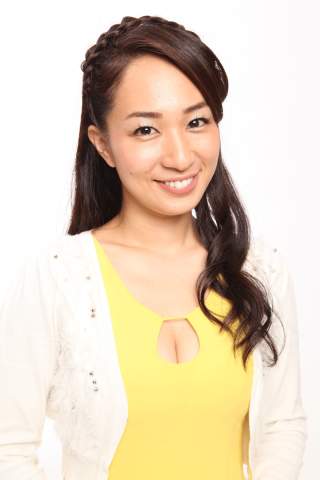Tuning into the state of same-sex rights with model turned LGBT commentator Ayaka Ichinose.
By Matthew Hernon
A year ago this month Tokyo’s Shibuya Ward became the first municipality to recognize same-sex marriage in Japan. Setagaya District soon followed suit and in the near future, the cities of Iga in Mie and Takarazuka in Hyogo will also be issuing partnership certificates for gay couples.
It’s a step in the right direction as far as the LGBT community is concerned, but how much of an impact will these measures actually make? Weekender recently spoke to social commentator and former gravure idol Ayaka Ichinose to hear her opinion. Last April she unofficially married actress Akane Sugimori in Shinjuku.
“People often ask us why we don’t we move to Shibuya or Setagaya, but the fact is last year’s ruling holds little weight,” she says. “Certificate or not, gay couples still have no rights when it comes to key issues like adoption or a partner’s inheritance. Therefore, from a legal perspective nothing has really changed.
“That’s not to say there aren’t positives. It’s a form of recognition and couples with these certificates—we are led to believe—will not be discriminated against when it comes to property rentals or hospital visits. In my opinion, though, the best thing about it is that it’s got people talking. You’re hearing more about it on the news, TV shows and even in parliament. Hopefully it’ll lead to further reforms and eventually same-sex marriages being legalized here.”
It could be a long process. While Article 14 of the constitution states that “All of the people are equal under the law,” Article 24 stipulates that “Marriage shall be based only on the mutual consent of both sexes.” Last year Prime Minister Shinzo Abe, who’s made no secret of his desire to revise the pacifist constitution, said altering the charter to allow same-sex marriages would require extremely cautious consideration because it “concerns the foundations of how families in our country should be.”
Compared to many European nations, public support in Japan remains low, but appears to be growing. A poll taken by research agency IPSOS in 2013 revealed that out of over 1,000 respondents 24% were in favor of same-sex marriages with a further 27% favoring some form of legal recognition. Two years later those numbers rose to 30% and 28% respectively. Not a huge rise, but an increase nonetheless.
A similar survey taken last year by the National Institute of Population and Social Security revealed that 51.1% supported gay marriage. However, more than half of the respondents also said they wouldn’t be supportive of a friend if they found out that he or she were homosexual. Ichinose’s not surprised by the results. “Japan is a very safe and polite country on the surface, but behind that there’s a darker side,” she says. “There are prejudices here and that’s one of the reasons why the suicide rate is high.”
The 35-year-old entertainer, who last year interviewed lesbian actress Ellen Page, told us she’s received a mixture of positive and discriminatory comments since coming out publicly in 2009, but has no regrets whatsoever about the decision. “I was a gravure idol so my agent thought I’d lose work. While that has turned out to be true it wasn’t going to stop me. It was such a relief when I came out. I’ve met many people in (Shinjuku’s famed gay district) Ni-chōme, including celebrities, who’ve hidden their sexuality and you can see the frustration it causes.”
It was in Ni-chōme where Ichinose met musical star Akane Suginori. Following a whirlwind romance the couple decided to tie the knot in a lavish ceremony in the spring of 2015 and are hoping that someday their marriage will be legally recognized. “The law changed in America last year and we’re usually 20-30 years behind them on issues like this so it might take that long,” Ichinose says. “It’s a tough battle, but we’ll keep on fighting.”
Ichonose’s book, “ビアン婚 Bian Kon, (Lesbian Wedding),” just came out last month.










